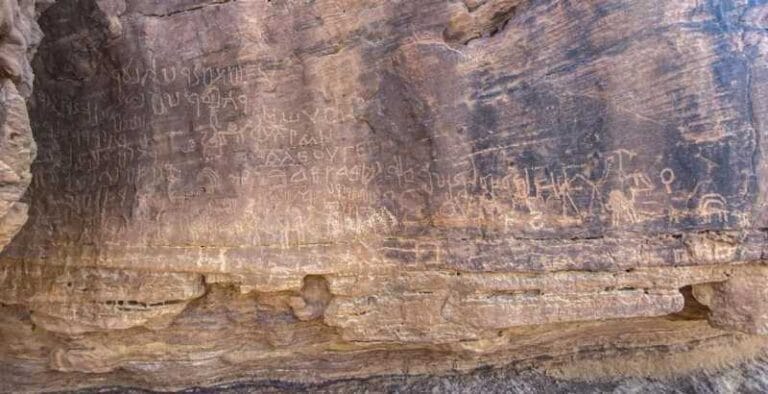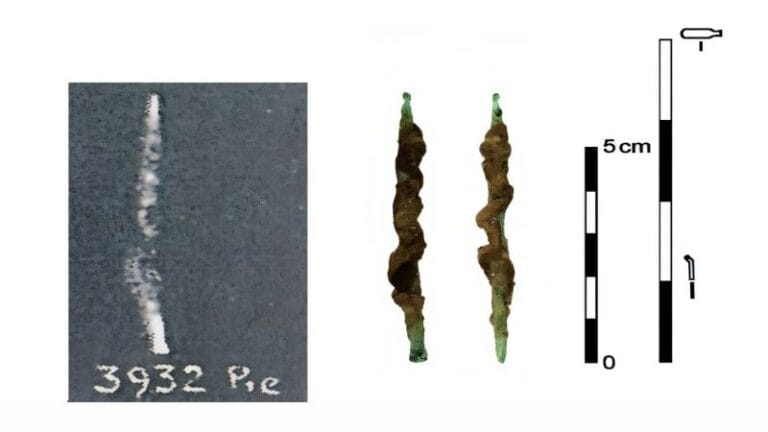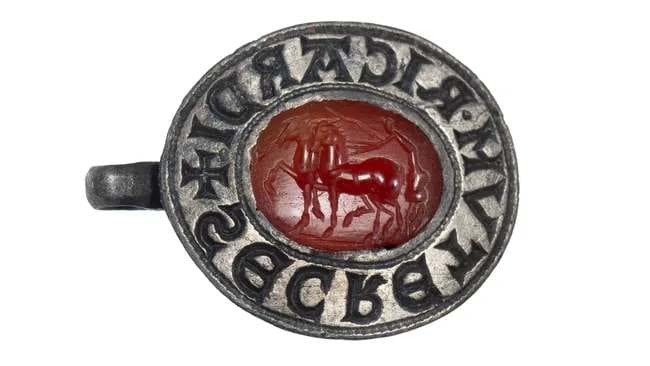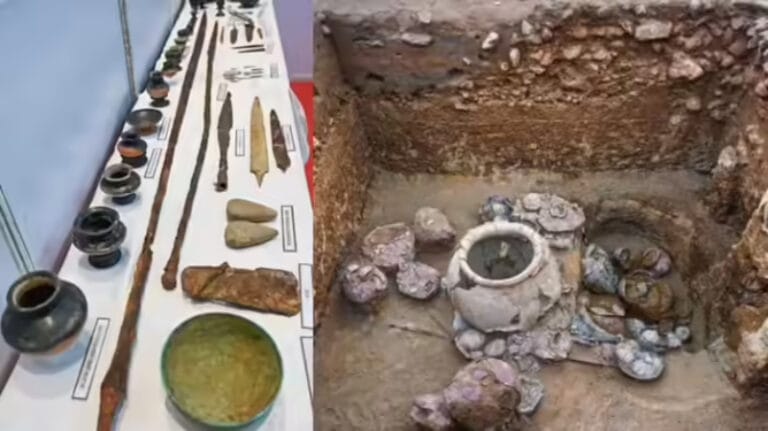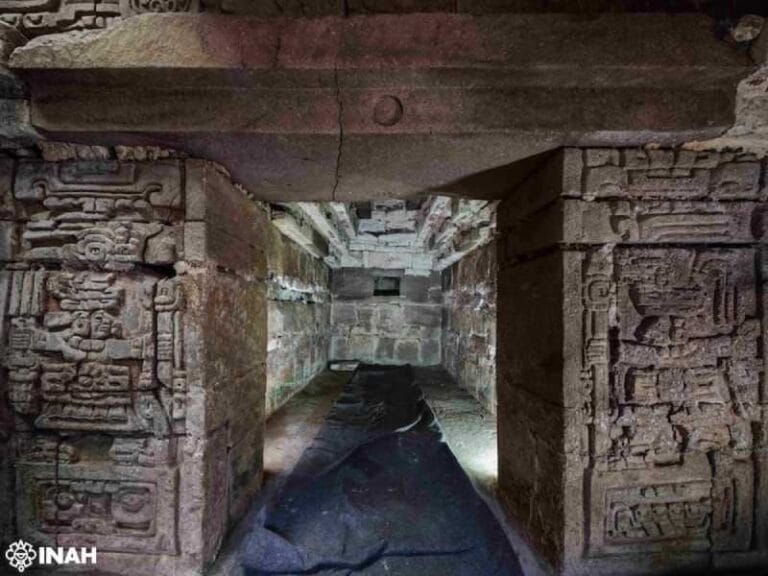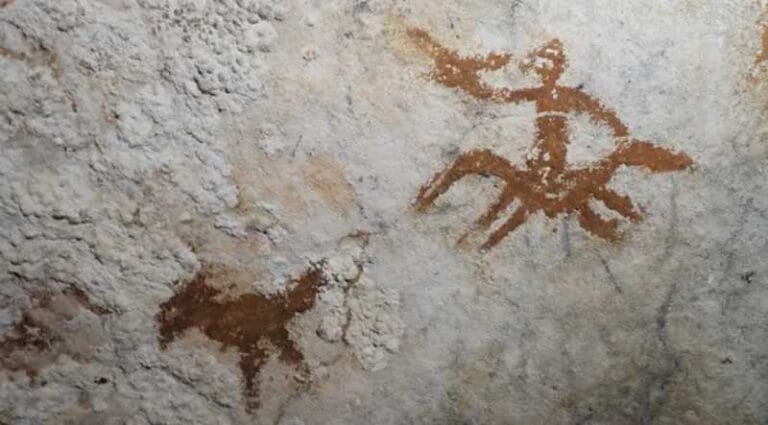Ramses II’s sword is discovered in an Egyptian fort
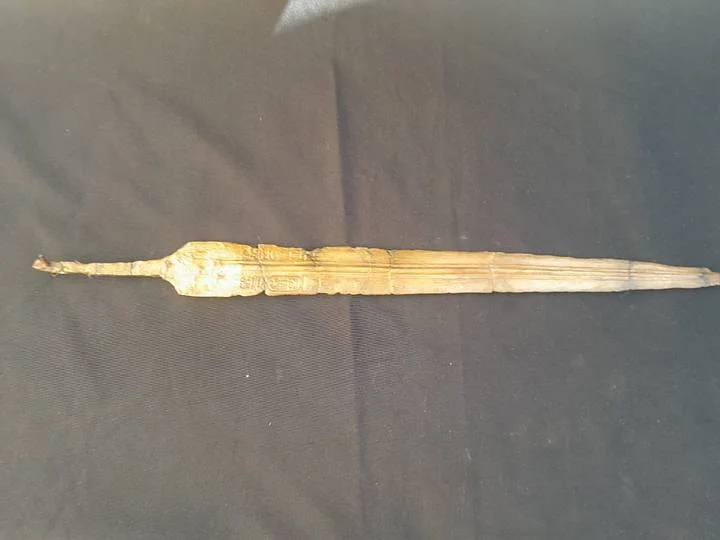
An archaeological mission, led by Dr. Ahmed Said Al-Kharadly of the Supreme Council of Antiquities, has made a major discovery in the Tel Al-Abaqain region, Beheira province, Egypt. A military complex from the New Kingdom era was found, which sheds light on the historical and strategic importance of the Al-Abaqain fort.
According to Dr. Mohamed Ismail Khaled, Secretary General of the Supreme Council of Antiquities, this discovery “highlights the historical and strategic value of the Al-Abaqain fort”. This fort served as an essential military base in the defense of Egypt, protecting the northwestern border from invasions by Libyan tribes and peoples from the sea.
In addition, according to Dr. Ayman Ashmawi, head of the Department of Egyptian Antiquities, “some of the buildings discovered functioned as warehouses to supply the soldiers with food and supplies”. Among the items found in the warehouses were large grain silos, ceramic remains, animal bones and fish, as well as clay ovens used for cooking.

Among the most impressive finds was a bronze sword decorated with the royal cartouche of Ramses II, confirming the fort’s connection with this pharaoh. Other artifacts such as weapons of war, hunting tools, protective amulets, toiletries and jewelry made of agate and faience were also found. A particularly curious find was the symbolic burial of a cow, which in Egyptian culture was associated with strength, abundance and prosperity, representing a celestial deity.
Another important aspect of the discovery were two limestone blocks, one of which contained inscriptions mentioning the titles of Ramses II, and the other, the name of an official called “Father”. Religious objects were also found, such as a faience scarab with the inscription “Amun, Lord of Heaven” and a bronze half-ring engraved with the image of the god “Amun-Horus-Akhti”.
These finds reinforce the relevance of the Al-Abaqain fort as a military and cultural center during the reign of Ramses II, offering valuable information about the daily life, military practices and religious beliefs of the ancient Egyptians.


